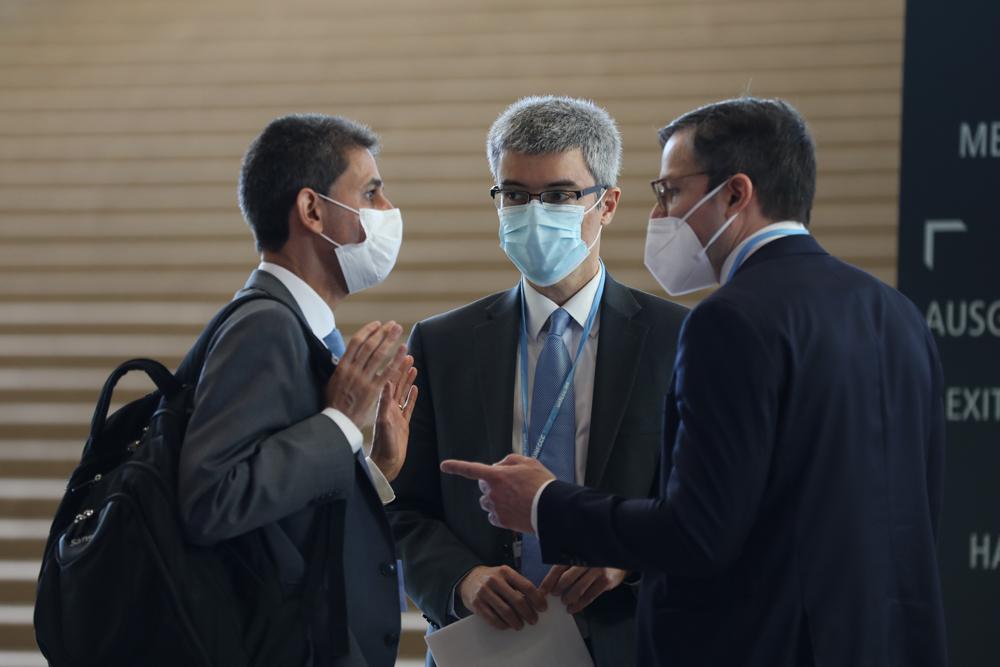
BRAZIL ELECTIONS 2022: A KEY CLIMATE EVENT
Since Jair Bolsonaro assumed Brazil’s presidency in 2019, the foreign policy of South America’s largest country has traced the style of its leader. A political exponent is known for his national conservatism, polarizing and controversial style, Bolsonaro has often been described as a far-right populist politician. For this reason, it cannot be said that in Bolsonaro’s handling of his country’s international relations, he has had an accommodating style, something that has been reflected in the work of his diplomatic envoys, including the negotiators of the Brazilian delegation to the UNFCCC.
Instead, during these two weeks of intermediate negotiations here in Bonn, there has been a change in attitude on the part of the Brazilian delegation, with the negotiators making constructive interventions on more than one occasion instead of engaging in the usual stonewalling. Brasilia seems to have cut its diplomats some slack, so it begs the question of what the reason for this change in approach is, which is almost disquieting when one considers the total dissonance with what is happening in Brazil daily. The most likely reason is the uncertainty surrounding the looming national elections in October, which probably does not allow for any additional “headaches” to be added to the country’s already tense domestic situation. The gap between support for Bolsonaro and former President Luiz Inácio “Lula” da Silva, his direct competitor in the upcoming elections, has narrowed in recent times. Much of Bolsonaro’s first term in office has been consumed by the government’s controversial approach to dealing with COVID-19, which has sadly seen Brazil climb the ranks of countries most affected by the pandemic, fueling discontent with it; in addition, Bolsonaro’s most recent attacks on the country’s electoral system are now dominating the headlines, causing further tension and a growing fear toward a possible coup.
This is especially relevant when one considers that Brazil is the world’s fifth-largest carbon emitter. Bolsonaro has autocratic tendencies and has led the country to anti-progressive positions on a great many issues, including human rights, the environment, and climate. He made good on his campaign promise in 2018 to open the Amazon rainforest to business, setting the stage for the genocide of the indigenous peoples who inhabit it and a “carbon bomb” in the process. It was only a few days ago that news broke of the death of the British journalist, Dom Phillips, and a former federal agent for the protection of indigenous peoples, Bruno Pereira, whose remains were apparently found in the depths of the Amazon jungle, where they were on a journalistic investigation into the violation of indigenous peoples’ rights. It took four days for Bolsonaro to initiate the search for the two men, reluctant to mobilize the army and navy claiming it was a “police case,” effectively delaying the search. The episode is indicative of Bolsonaro’s general attitude toward indigenous peoples and their allies, who are seen as a hindrance to his plans to exploit Brazil’s natural resources, and therefore not deserving of the government’s attention and protection.
Bolsonaro can be considered the most dangerous climate denier in the Americas; in three years thanks to his policies, Brazil has experienced unprecedented rates of deforestation of the Amazon, effectively weakening its commitments as a Nationally Determined Contribution (NDC) Paris Agreement country. Given the weight of Brazil’s emissions, if it succeeds in securing another mandate, the implications for the Amazon rainforest would be very serious and there would be a risk of failing to limit the rise in global average temperatures to 1.5°C degrees.
Therefore, Brazil’s elections are probably the most important climate-related event of 2022 since the dramatic invasion of Ukraine. At a time when governments around the world are returning to the pursuit of fossil fuels to escape the energy crisis, it would be crucial to have one of the major global emitters at the negotiating table, with a new president and a plan to concretely reduce emissions, protect the rights of indigenous peoples, and halt the unchecked destruction of one of the ecosystems fundamental to sustaining life on the entire planet.
by Chiara Soletti, Policy Advisor and Climate and Rights Department Coordinator
Published online for Italian Climate Network on the website of the organisation.
Image ENB.IISD_Delegates from Brazil consult 15 June 2022
